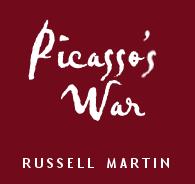|
|
 Lieutenant von Moreau guided his plane over rendezvous points at Villareal and Garai as the two men made the short flight north. He flew within three kilometers east of Gernika as he continued north to the rocky Bizkaia coast, where he banked the Dornier over the fishing village of Elantxobe and turned nearly 180 degrees to the south. The plane now followed the broad and beautiful estuary of the Ria de Mundaka eight kilometers south to Gernika.
Lieutenant von Moreau guided his plane over rendezvous points at Villareal and Garai as the two men made the short flight north. He flew within three kilometers east of Gernika as he continued north to the rocky Bizkaia coast, where he banked the Dornier over the fishing village of Elantxobe and turned nearly 180 degrees to the south. The plane now followed the broad and beautiful estuary of the Ria de Mundaka eight kilometers south to Gernika.
The town of about seven thousand inhabitants stretched north to south in a broad and breathtakingly green mountain valley, tucked between the river and the shoulder of a high forested hill with the hamlet of Lumo at its summit. The town's uniform red-tiled roofs were bright in the afternoon sun, and the plane passed low above them, the two airmen who were confined in its narrow cockpit and bombardier's bay swiftly scouting for evidence of antiaircraft defenses and visually orienting themselves to their several targets below. Flying at 200 kilometers an hour, it took only moments for the Dornier to pass over the southern boundary of the town, then it banked into a wide and sustained turn, circling back over the estuary and once more crossing the dense cluster of rooftops from the north. This time, however, Hoyos released twelve 50-kilogram percussion bombs as the plane neared the railroad station and the plaza that fronted it on the west, the bombs falling in a tight cluster and exploding almost in unison as they found the busy depot, the sunny plaza, and the unsuspecting ground.
 "There were a lot of people in Gernika that day," remembered 73-year old José Ramon Arriandiaga six decades after the bombing. "It was a market day. Suddenly we saw a plane coming toward us from the Mundaka area, flying very low. People were afraid and started to run. My father grabbed us and took us to the train station and hid us under a carriage. But then he realized that the station had to be a military target, so we got out. He was right. No sooner than we ran away it all blew up." Nine-years old at the time of the attack, Arriandiaga and his family had traveled by train from Bilbao and were waiting for a bus that would take them to their home in nearby Elantxobe, but the bombing trapped them instead in the heart of targeted Gernika, where dozens more bombs soon reduced whole rows of buildings to rubble. "The first planes were followed by many more; soon they all were dropping bombs, huge bombs, and Gernika was being destroyed. We were running aimlessly because we didn't know where to go. Houses were collapsing everywhere. It was incredible bombing."
At last Arriandiaga and his family joined dozens of others in a makeshift shelter in the basement of a large private home five blocks west of the train station. "Men had to hold the doors to the cellar closed because the shock-waves of the nearby bombs would blast them open. Everyone inside was crying and screaming and said we were all going to die. The noise was terrible. A priest came and gave us all absolution and told us to prepare to die."
"There were a lot of people in Gernika that day," remembered 73-year old José Ramon Arriandiaga six decades after the bombing. "It was a market day. Suddenly we saw a plane coming toward us from the Mundaka area, flying very low. People were afraid and started to run. My father grabbed us and took us to the train station and hid us under a carriage. But then he realized that the station had to be a military target, so we got out. He was right. No sooner than we ran away it all blew up." Nine-years old at the time of the attack, Arriandiaga and his family had traveled by train from Bilbao and were waiting for a bus that would take them to their home in nearby Elantxobe, but the bombing trapped them instead in the heart of targeted Gernika, where dozens more bombs soon reduced whole rows of buildings to rubble. "The first planes were followed by many more; soon they all were dropping bombs, huge bombs, and Gernika was being destroyed. We were running aimlessly because we didn't know where to go. Houses were collapsing everywhere. It was incredible bombing."
At last Arriandiaga and his family joined dozens of others in a makeshift shelter in the basement of a large private home five blocks west of the train station. "Men had to hold the doors to the cellar closed because the shock-waves of the nearby bombs would blast them open. Everyone inside was crying and screaming and said we were all going to die. The noise was terrible. A priest came and gave us all absolution and told us to prepare to die."
Excerpted from Picasso's War by Russell Martin, Copyright© 2002 by Russell Martin.
Excerpted by permission of Dutton, a division of Penguin Putnam, Inc.
All rights reserved. No part of this excerpt may be reproduced or reprinted without permission in writing from the publisher.
|
|

 |
| |

|
|






